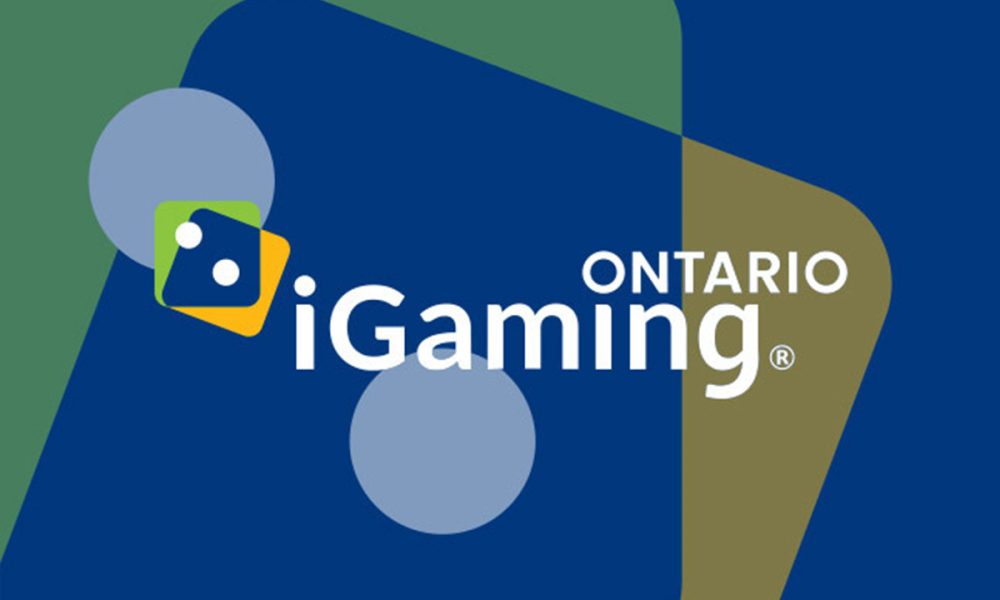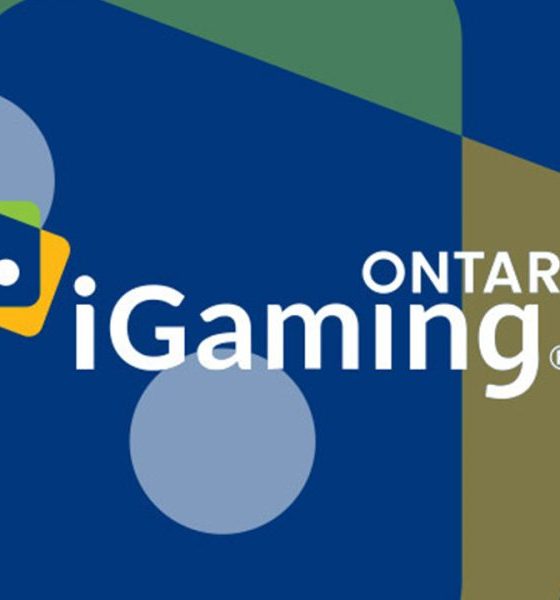

Canada
iGaming Ontario to Request Proposals for a Centralized Self-Exclusion Solution in Early 2024
iGaming Ontario (iGO)’s vision is to lead the world’s best gaming market, which includes building a safer and more enjoyable experience for all igaming players in Ontario. To support players who decide to stop or take a break from gambling, iGO is going to issue a request for proposals (RFP) in early 2024 for a centralized self-exclusion solution that will enable a player to self-exclude from all Ontario regulated igaming operators in a single registration process.
Given the coordinated nature of the program across all regulated igaming operators, including Ontario Lottery and Gaming Corporation (OLG)’s igaming site, the successful bidder will be expected to develop and implement a centralized self-exclusion system that integrates with all operator systems and supports players’ self-exclusion registration, renewal, and reinstatement.
The following are iGO’s principles for centralized self-exclusion:
PLAYER FOCUSED – to provide options to players to support their commitment to take a break, to ensure processes are easy to use with minimal barriers and challenges, and to offer a seamless connection to relevant support services.
SUPPORTIVE – to deliver and execute the program in a non-stigmatized, non-judgmental manner; to be supportive and encouraging so that players feel good about registering in self-exclusion.
TRANSPARENT – to ensure expectations and consequences for players and Operators are clear and information is comprehensive and well-promoted.
SECURE – to ensure player information is securely protected and shared only with relevant employees for the purposes of administering the program.
ROBUST – to implement strong processes and procedures bolstered by secure, responsive, and highly available technology to enable an effective program that supports a player’s goals.
VIABLE – to develop systems and procedures that are manageable and practical for Operators to implement.
With these principles in mind, iGO is seeking interest from responsive and nimble companies that are able to build modern, innovative, secure cloud-based SaaS solutions that are high-profile, public-facing and critically important to building and maintaining the trust and confidence of a wide range of stakeholders. The successful bidder will partner with iGO on a multi-year program to develop best-in-class user experiences by leveraging modern, innovative technology.
Some features for an effective centralized self-exclusion solution include:
- Allowing players to create and manage their self-exclusion profile and including Know Your Client (KYC) identity verification
- Providing players with easy access to self-exclusion at any time including while they are gambling on any regulated igaming website
- Having registration, renewal, and reinstatement processes that are intuitive, simple and offer supporting information.
Canada
Bragg Gaming Group Enteres into New Financing Agreement with Bank of Montreal

Bragg Gaming Group, a leading global B2B iGaming content and technology provider, announced it has entered into a new financing agreement with the Bank of Montreal (BMO), a leading North American financial institution, pursuant to which BMO has made available to the Company certain credit facilities in a maximum aggregate amount of up to US$6.0 million to support its ongoing working capital and general corporate requirements (the BMO Facilities).
In connection with the closing of the BMO Facilities, Bragg has successfully repaid in full the outstanding promissory note with entities controlled by Doug Fallon (the Prior Note Indebtedness). The new BMO Facilities replace the Prior Note Indebtedness, signalling a significant step in the Company’s financial strategy to partner with a major commercial bank to support its growth.
“We are very pleased to establish this new relationship with the Bank of Montreal, a recognized leader in financial services. This new credit facility strengthens our balance sheet and provides us with a flexible capital structure to execute our strategic plan. The ability to secure financing from a major North American bank underscores the confidence in our business and our long-term growth prospects. We look forward to a long and successful partnership with BMO,” said Robbie Bressler, CFO of Bragg Gaming Group.
The BMO Facilities are secured by, amongst other things, a first-ranking security interest over all of the assets of the Company and certain of its key operating subsidiaries, and are uncommitted and are repayable upon the earlier of (i) demand by BMO, (ii) the occurrence of certain insolvency events, and (iii) on the one-year anniversary of the closing date, unless a one-year extension is granted at BMO’s discretion.
The agreement includes customary legal and financial covenants, including a requirement for the Company to maintain a Total Funded Debt to EBITDA ratio not exceeding 2.50:1.00, and a Fixed Charge Coverage Ratio of not less than 1.25:1.00. These financial covenants are to be tested on a consolidated basis at the end of each fiscal quarter.
The Company currently expects to draw on the BMO Facilities in Canadian dollars, which would result in estimated borrowing costs of 6.9%–7.9% for Prime-based loans or 5.9%–6.9% for CORRA-based loans, depending on the period of the draw and the Company’s leverage ratio. Standby fees on the unused portion of the revolving facility will range from 0.75% to 1.75% per annum, depending on leverage.
Management believes that based on the terms of the BMO Facilities, the Company’s borrowing costs on an annualized basis will be less than half of its Prior Note Debt.
Matevž Mazij, CEO of Bragg Gaming Group, said: “Securing this BMO facility represents a critical milestone in our strategic plan to strengthen Bragg’s financial foundation and accelerate value creation for our shareholders. With our cybersecurity incident contained and our borrowing costs cut by more than half, we are laser-focused on executing our strategic shift toward higher-quality earnings. The Company is prioritizing margin and cash generation over lower-margin revenue, and synergies realized post-quarter end to become a leaner operation. We’ve already realized EUR 2 million in annualized synergies and are on track to achieve our 20% Adjusted EBITDA margin target for the second half of 2025.
“Our recent leadership additions in AI and innovation, combined with our expanding partnerships with operators like Fanatics and Hard Rock Digital, position us to pursue highly accretive growth opportunities methodically. The Company remains focused on growing the business in a sustainable and margin-accretive manner, with strong momentum in the proprietary content and technology pipeline positioning Bragg for long-term profitable growth.
“We understand the importance of delivering results for our shareholders, and our board and management team are fully aligned and committed to executing the strategic initiatives that will drive value. With improved financial flexibility, a strengthened operational foundation, and clear milestones ahead, we believe we have the right strategy and team in place to unlock Bragg’s full potential. We remain committed to maximizing shareholder value as we build sustainable, profitable growth and ensure our strong operational performance translates into appropriate market valuation.”
Cyber Breach Update
The Company has also provided an update on its previously announced cybersecurity incident initially detected on August 16, 2025.
Immediately following detection, Bragg took appropriate steps to mitigate any potential impact of the breach. With the assistance of independent cybersecurity experts, the Company has followed industry best practices and considers that the incident is now resolved.
There continues to be no indication that any personal information was affected and the breach has had no impact on the ability of the Company to continue its operations. Bragg has also provided assurances to its customers regarding the security of its game titles. The Company has experienced no negative impact on its revenue or profitability and does not expect that the cost of responding to the incident will have a material financial impact on the Company.
The Company has already applied knowledge gathered from the investigation of the event to enhance its cyber security defenses.
The post Bragg Gaming Group Enteres into New Financing Agreement with Bank of Montreal appeared first on European Gaming Industry News.
Betty
Thunderkick commits to growth in Ontario with Betty partnership

Independent slots studio Thunderkick has agreed a deal with Ontario-based operator Betty to supply the rapidly growing online casino with a diverse collection of globally popular titles.
Betty, an official partner of sporting franchises Toronto Maple Leafs and Toronto Raptors, has risen to prominence since its 2022 establishment, when it was built following the consultation of 300 casino players to create the optimal iGaming environment.
Distinguishing itself from North American competitors by catering specifically to slot enthusiasts rather than sports bettors, the operator has curated a portfolio of 2,800 games, hand-picked to deliver customers maximum entertainment value.
Thunderkick’s content is the latest to be integrated into Betty’s online casino, and the agreement will see a selection of its most popular titles, including The Wildos 2, Midas Golden Touch 3, and Esqueleto Explosivo 3, made available to a greater number of Ontarian players.
Thunderkick marked its debut in the Canadian province in Q2 of 2024, and has since partnered with a network of leading operators to improve its market position. The collaboration with Betty will further amplify its visibility in a key jurisdiction as the provider looks to reinforce its reputation as a global slot developer.
Svante Sahlström, CCO at Thunderkick, said: “It’s our mission at Thunderkick to go deeper, not wider, in 2025. That means forging meaningful, lasting relationships in target markets as opposed to securing as many commercial deals as possible.
“Since entering Ontario over 12 months ago, we have worked tirelessly to enhance our presence in the province, and working with leading brands such as Betty allows us to bring our unique games to a deeper pool of Canadian players.”
Paraskeva Smirnova, Casino Operations Manager at Betty, added: “Betty’s USP has always been our drive to build a slot portfolio with the very best titles from the industry’s most creative suppliers.
“Thunderkick’s passion for slot development is there for all to see, and the introduction of its games to our casino further elevates the consumer experience.”
The post Thunderkick commits to growth in Ontario with Betty partnership appeared first on Gaming and Gambling Industry in the Americas.
BCLC
Save the Date: BCLC’s New Horizons in Safer Gambling Conference Returns November 2026

BCLC is pleased to announce the return of the New Horizons in Safer Gambling Conference, taking place November 2–4, 2026, at the JW Marriott Parq Vancouver.
This global event brings leading voices in research, policy and industry together to explore innovative approaches to safer gambling. Attendees can expect two days of forward-thinking dialogue, evidence-based insights and collaborative solutions to help shape the future of player health.
Sponsorship Opportunities Now Available
New to the 2026 conference, BCLC is excited to offer sponsorship opportunities to organizations that share BCLC’s passion for safer gambling. Benefits of sponsoring New Horizons 2026 include industry visibility, leadership recognition and meaningful engagement with a global audience. To learn more about sponsorship, please e-mail [email protected].
Registration and program details will be released later this fall.
The post Save the Date: BCLC’s New Horizons in Safer Gambling Conference Returns November 2026 appeared first on Gaming and Gambling Industry in the Americas.
-

 gaming3 years ago
gaming3 years agoODIN by 4Players: Immersive, state-of-the-art in-game audio launches into the next generation of gaming
-
EEG iGaming Directory9 years ago
iSoftBet continues to grow with new release Forest Mania
-
News8 years ago
Softbroke collaborates with Asia Live Tech for the expansion of the service line in the igaming market
-
News7 years ago
Super Bowl LIII: NFL Fans Can Bet on the #1 Sportsbook Review Site Betting-Super-Bowl.com, Providing Free Unbiased and Trusted News, Picks and Predictions
-
iGaming Industry8 years ago
Rick Meitzler appointed to the Indian Gaming Magazine Advisory Board for 2018
-
News7 years ago
REVEALED: Top eSports players set to earn $3.2 million in 2019
-
iGaming Industry8 years ago
French Senator raises Loot Boxes to France’s Gambling Regulator
-
News7 years ago
Exclusive Interview with Miklos Handa (Founder of the email marketing solutions, “MailMike.net”), speaker at Vienna International Gaming Expo 2018













